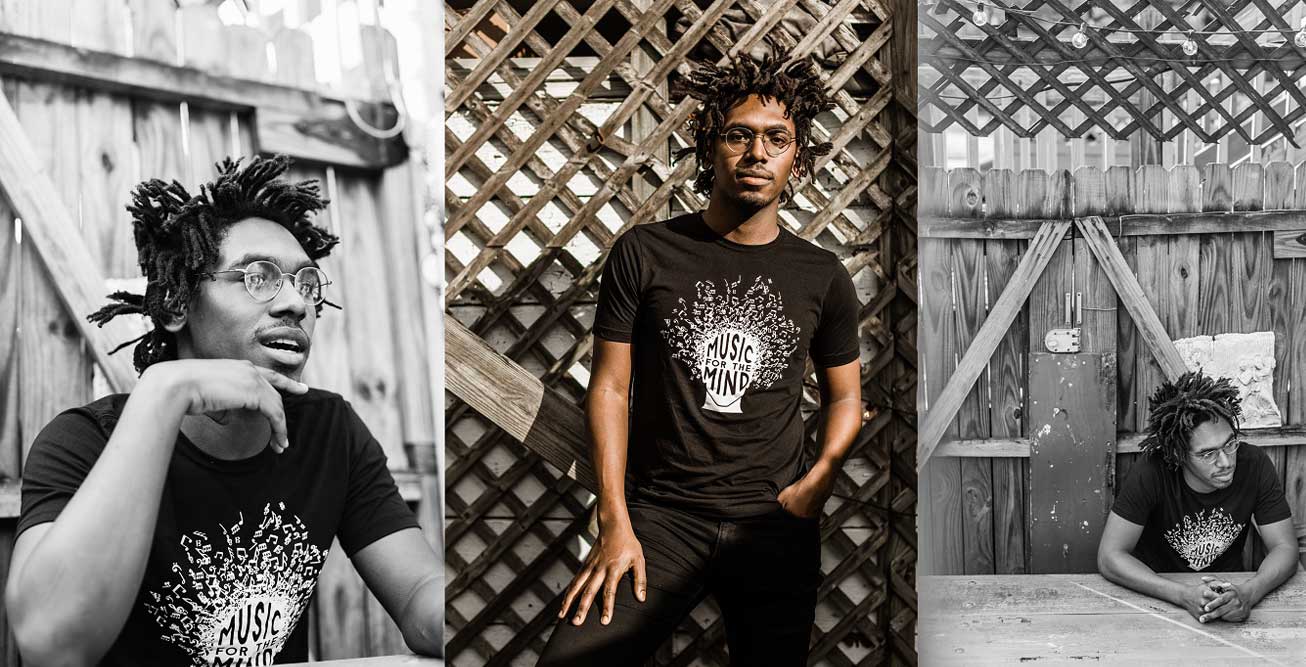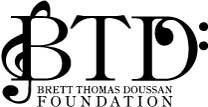Dominic Minix

The spotlight is on Dominic Minix (a.k.a. Yung Vul) for September's Music for the Mind spotlight, just in time for Dominic's performance at the 3rd Annual Music for Mental Health Benefit happening on September 20th! Read on to learn more about Dominic's journeys with music and mental well-being, and be sure to get your tickets to the concert at www.gasagasa.com.
How would you describe your music in three words?
Dominic: Jazz, rock, hip-hop. At least, the music that I’m making as of present.
What is the earliest music memory that made you have that “I want to do that” moment?
Dominic: I saw the Thelonius Monk Ensemble perform with Kurt Rosenwinkel at Snug Harbor. I went with my dad to the midnight show, and it was really cool, as a high school freshman, to be on Frenchmen street with my dad, seeing music of that caliber being performed in that setting, with incredible improvisation. It felt magical. I was already playing at that time, but the experience solidified my desire to be a professional musician.
You perform under your own name, in collaborative band projects, and as a backing band member for other original artists, both as a musician and a songwriter. When you think back over these experiences, how has that trajectory shaped your music career?
Dominic: As artists, our roles change, they have to change. In the beginning, I was “just a guitar player,” a student guitar player with many mentors. Then I started to play with my mentors, started my own projects, and became a bandleader. It developed into this entrepreneurial venture where I’ve been figuring out how to make my music a viable business, as well as an artistic pursuit.
I don’t think being more conscious of my business decisions as a musician has anything to do with the art. For example, (Dominic’s latest release) “85 & Ride (Nyctophobia)” was more of a fun experiment with friends, a fluke in a way. When I was making that, or any music, it’s always experimenting and pushing myself, discovering new sounds or writing. And, I don’t think that an artist trying to become better at business changes the art as much as it enhances their ability to make art… because the artist then has more autonomy over what they are producing. That dream of having a record label fund an artist somewhat seems like slavery as a choice now, when we can manage our creative pursuits independently with the state of technology and social connectedness that’s available.
Tell us a little bit more about that social connectedness aspect of your music journey, and your personal well-being.
Dominic: There are collaborators I consistently work with, such as Jonathan Jackson. We work with each other because we make beautiful stuff together; what comes first there is the art. That said, though, I do think as much as – in New Orleans – musicians find their group of collaborators and do it kind of exclusively, I think we can work on building a more inclusive music scene for the culture and recognizing the culture.
As far as my community in my personal well-being, that comes back to the music I play. I wouldn’t have been able to play Buku Music + Art Project if it weren’t for my Loyola family, I wouldn’t have played French Quarter Festival if it hadn’t been for the people who came out to the Clashback Series Shows (at Ace Hotel), and my music wouldn’t get to keep extending without fans and friends sharing and supporting it.
Allen Toussaint once stated, “Music is everything to me short of breathing. Music also has a role to life you up-not to be escapist but to take you out of misery.” How has music been involved with your own mental health and well-being?
Dominic: I think that the most painful thing is not being able to believe what you see. I think everyone is ultimately alone, but everyone wants to be understood. Artists often make music to reach out to someone, to relate and connect; we all have a desire to connect. But when people are unwilling to connect with you, you feel isolated and it’s a very lonely place. Not believing what you see when you are trying to relate yourself to someone else, but are unable to, or are told you’re crazy, different, weird, whatever it is… there’s a wild mental conflict that happens in that experience.
That’s where music gives you someone, something, to connect with. When you’re alone, music is always there. Sometimes it’s just the song. Sometimes it’s the instrument. But it’s there. I like to think I make music for the lonely.
When does the phrase “Music for the Mind” mean to you?
Dominic: Music is mind numbing, in the best kind of way, because you’re not thinking about anything else. Whether you’re practicing it or listening to it, it distracts from your problems. It can provides healing, and a lesson to what you’re going through.
What are some resources that you use, outside of music, to care for your mental health?
Dominic: I sleep, and I try to sleep well. I eat well, and exercise, at least every two days. I like to take walks. Walks are so great because, as an artist, I can be obsessive, which sometimes feels like a powerful tool in music-making - but it’s not always the healthiest. There’s a Kanye West line, “I’m the best at finding what I don’t like the most,” and that’s kind of what artists do. We look for the ideal world in our music, maybe a vision that seems far away, and obsess over the challenges or limitations in that process. So, sometimes even just a 20-minute walk will open opportunities in my brain that I didn’t have before, especially when I’m getting into that obsessive mind space. I also like driving and being by the water. It’s meditative.
On a sillier note, pop quiz: what’s your go-to karaoke song?
Dominic: I’m terrified of karaoke! One time I tried to sing “Ribbon in the Sky” (by Stevie Wonder) at a local bar and it was embarrassing. But nobody cared! When I perform, I take it very seriously, and with karaoke, I can’t tell if it’s supposed to be serious or a joke. I’m not a karaoke singer, I’m a Dominic singer – I sing my songs with this voice. But… if I really were to do karaoke again, I’d probably choose “Happier than the Morning Sun” by Stevie Wonder. Keeping it Stevie, just a different Stevie.
To end our interview, do you have any last thoughts you’d like to share for our interview?
Dominic: I think there’s something important about routine and practice in both music and lifestyle, and about having faith in that process of routine and practice. In our social media age, there’s a wave of attention-seeking and emphasis on achievement, self-glorification, and sometimes the motives for living life get distorted. What helps me whenever I’m doubtful, or distracted, is just to go back to the roots where it started, by practice and writing and routine. In that space that I find less obsession with my perceived worth, by others, and more satisfaction with what I enjoy, what makes me tick. Oh, and it seems obvious, but the routine has to be a healthy routine! That’s crucial.
Dominic Minix is a New Orleans-based songwriter, guitarist, vocalist, and bandleader who performs both under his own name and band (Yung Vul), as well as with artists including Pell, Solange, Nicholas Payton, and Christian Scott aTundje Adjuahaf. With an ear for genre-crossing, Dominic’s original music channels everything from punk rock to neo jazz, with lyrics that share an intimate look into his inner world. You can find more on Dominic at:
Official Website: https://dminixmusic.com/
Facebook: https://www.facebook.com/TheDominicMinixQuartet
Instagram: https://www.instagram.com/dminixmusic/
Spotify: https://open.spotify.com/artist/07OSdmWTtKsl9OY6QcpfLt
Bandcamp: https://
All photos by Jose Cotto for the Brett Thomas Doussan (BTD) Foundation.

